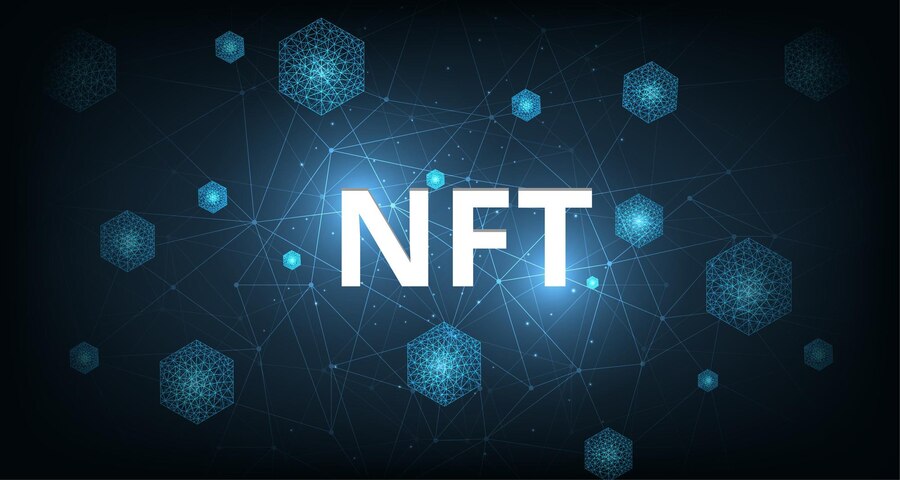5 inspiring ways blockchain is transforming philanthropy

When you mention blockchain technology, images of cryptocurrency and financial systems often come to mind. But its scope extends far beyond these areas. Through the development of transparent, secure, and decentralized systems, blockchain has gained significant relevance. Integrating blockchain into philanthropy opens new avenues for community empowerment. This convergence has the potential to reshape social norms and values, but the transformative power of blockchain in philanthropy remains untapped. Fortunately, several projects are bridging this gap. This article explores five innovative ways blockchain is reshaping philanthropy, providing a glimpse into a future where giving becomes more impactful and transparent.
One. Social DAO for community-driven philanthropy
Decentralized Autonomous Organizations (DAOs) are a new approach to organizing groups without central leadership. In a DAO, community members are responsible, decision-making rules are set in advance and operated by blockchain technology. This innovative setup is changing the way we handle social impact projects and community contributions. A DAO is essentially a digital network run by community consensus. Unlike traditional organizational structures such as corporations, DAOs provide communities with the collective power to make decisions, helping to fund creative and impactful projects around the world. It’s inspiring to see the potential of DAOs to empower people to choose and influence global change. DAO allows the community to come together and support good causes. Unlike traditional social groups, DAOs give donors more control over where their money goes, ensure transparency about financial matters, and allow anyone, anywhere to participate. These developments are an important step in making the world of philanthropy more efficient, fair and accountable globally, benefiting everyone from charities in need of funding to individuals looking to take an active role in creating positive change in the world. provide. For example, Giveth’s model streamlines the process for community members to contribute funds to high-impact projects, effectively addressing critical global issues like poverty, climate change, and inequality in a decentralized way.
2. Enhancing transparency through donation tracking
The biggest challenge in donating and philanthropy is the suspicion and distrust that donors often feel. Many people are unsure whether their donations are actually being used effectively and making a real difference. Unfortunately, there have been cases where the funds needed for social projects did not flow as expected. This has made people lose trust and hesitate to offer more. Philcoin, a cryptocurrency for philanthropy, is solving this important problem. Philcoin’s platform stands out for its focus on transparent and trackable donations, allowing donors to see the direct impact their donations are having. This is a feature not often found in traditional philanthropic models. An example of this is their Participation We work with Mercy House, which supports women affected by violence. Giveth, another blockchain platform for charities, is also building trust and accountability in projects like donations. earthquake victims In Morocco. The transparency provided by blockchain ensures that donors can track their donations, alleviating suspicion and encouraging more generous giving.
3. Innovative fundraising through cryptocurrency donations

Cryptocurrencies are great for breaking down barriers. We accept donations to support community projects around the world. These new ways to donate encourage more people to help this important cause. Projects like Philcoin are democratizing the act of giving by simplifying cryptocurrency donations and making giving more accessible to more people. Cryptocurrency allows people to donate directly to each other, wherever they are. Cryptocurrencies are not tied to the financial rules of a single country. This makes it easier for anyone to make a real impact through their donations. Cryptocurrencies also allow people with less money to make small donations, opening up philanthropy to a wider audience. Charities are starting to use cryptocurrencies more and more. for example, Binance Charity Foundation Used for purposes all over the world. Philcoin is also developing a new way to raise funds with cryptocurrencies, demonstrating how cryptocurrencies can really help charity work. We recently partnered with Topazio Floripa, the mayor of Florianopolis, Brazil, to feed 1,000 families this Christmas. Philcoin TwitterParticipation in this area is emphasized.
4. Smart contracts for influential donations
Traditional philanthropy often involves a lot of intermediaries, making it expensive and reducing the amount of money that actually goes into donations. Blockchain is changing this by providing a more direct way to donate. Resources can be transferred directly through smart contracts, an automated consensus on the blockchain, saving additional costs and ensuring that more of what donors provide reaches those who need it. It’s like giving a gift directly to someone, regardless of location. Projects like Philcoin and Giveth leverage smart contracts to streamline donations, ensure efficiency, and reduce administrative overhead, a critical differentiator in the charity sector. In traditional methods, there may be a delay in obtaining the necessary funds, but this is not an issue with blockchain smart contracts. This shows how smart contracts can eliminate the need for middlemen in philanthropy. The Giveth platform allows donors to withdraw their donations at any time before funds are finalized.
5. Real-time reporting and reduced overhead costs

Trust is often an issue in charities as donors sometimes worry about how their money is being used and cannot see progress in real time. Blockchain technology changes this situation through a clear and immutable record-keeping system. With blockchain, donations don’t disappear. Donors can see where their money is going every step of the way. Philcoin’s focus on real-time reporting improves donor trust, a key factor in maintaining long-term charitable relationships. Blockchain provides a way for charities to be transparent and accountable, using a method called ‘proof of payment’ to verify how donations are used. Raising money for a charity is usually expensive because of intermediaries such as marketing companies that charge a lot for their services. 800% ~ 1700% With a fee. And sending money across borders can cost you more. However, with blockchain, these high administrative costs are not an issue, so more of the money raised goes to real causes.
A new era in philanthropy
Indeed, when blockchain technology joins forces with philanthropy, it creates a path that blends human compassion and innovation. We are now at the beginning of this new journey to discover how blockchain and cryptocurrency can make the world better. As we enter this new era, it’s great to see that certain cryptocurrencies aren’t just about money – they actually have the power to create positive change. By embracing these changes, blockchain charity projects such as: Feelcoin, castand Binance Charity Foundation We are leading us into a future where all philanthropy can do its best work, and we are building a world where trust, inclusion and compassion are more important than ever.
Post views: 254



